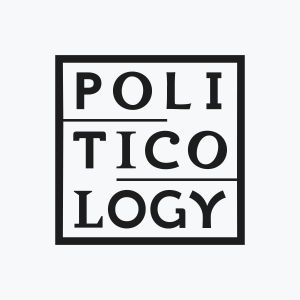
TikTok's potential risk to US national security is raising tough questions about how to address the challenge—legally. With 150 million Americans' personal data possibly falling into the hands of the Chinese Communist Party and fears of election interference via a foreign-controlled algorithm, TikTok finds itself in the harsh glare of the U.S. government's scrutiny. Broad bipartisan support favors aggressive action to ban the platform, but is such action even constitutional?
Join Joe Cohn, Director of Legislative and Policy at the Foundation for Individual Rights and Expression, and Hagar Chemali, former spokesperson for the U.S. Mission to the UN. Together with host Ron Steslow, they dissect the potential impact of the RESTRICT Act that could not only ban TikTok but delegate sweeping power to the executive branch to go even further.Tune in to explore the delicate balance between national security and preserving free speech rights.
(03:10) The tensions between national security and the First Amendment
(10:39) How Edward Snowden’s leak shows this tension
(16:05) The national security risks that TikTok presents
(20:52) What is the status quo for determining if national security concerns can trump free speech rights?
(23:57 ) What the RESTRICT Act is and what it does
(26:23) First Amendment concerns about the RESTRICT Act as it’s currently written
(32:03) How this legislation relates to speech codes
(43:43) Changes that legislators could make to the RESTRICT Act to better protect free speech
(1:05:40) The new Montana Law banning TikTok
(1:07:00) How China might respond if the RESTRICT Act passes
Check out Oh My World! with Hagar Chemali on YouTube: https://www.youtube.com/c/ohmyworldwithhagarchemali
Follow Ron, Joe, and Hagar on Twitter:
https://twitter.com/RonSteslow
https://twitter.com/JoeatFIRE
https://twitter.com/HagarChemali
Learn more about your ad choices. Visit megaphone.fm/adchoices
More Episodes
 2024-09-12
2024-09-12
 2024-09-06
2024-09-06
 2024-09-04
2024-09-04
 2024-08-30
2024-08-30
 2024-08-28
2024-08-28
 2024-08-24
2024-08-24
 2024-08-21
2024-08-21
 2024-08-16
2024-08-16
 2024-08-09
2024-08-09
 2024-08-07
2024-08-07
 2024-07-31
2024-07-31
 2024-07-26
2024-07-26
Create your
podcast in
minutes
- Full-featured podcast site
- Unlimited storage and bandwidth
- Comprehensive podcast stats
- Distribute to Apple Podcasts, Spotify, and more
- Make money with your podcast
It is Free
- Privacy Policy
- Cookie Policy
- Terms of Use
- Consent Preferences
- Copyright © 2015-2024 Podbean.com






